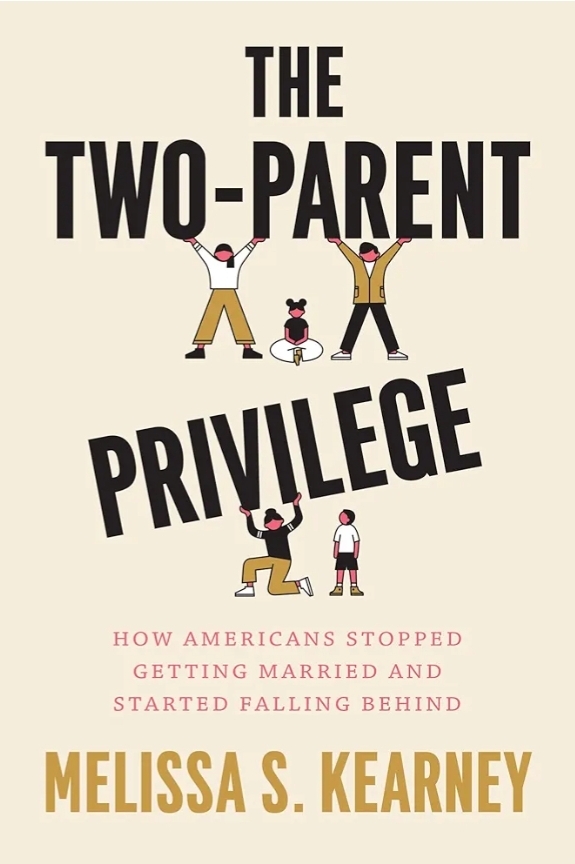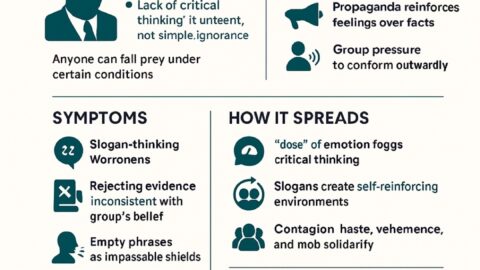Melissa S. Kearney’s The Two-Parent Privilege: How Americans Stopped Getting Married and Started Falling Behind explores the growing divide between children raised in two-parent households and those raised in single-parent homes, focusing on the economic and social disparities that have emerged as a result. Kearney, an economist, uses data-driven analysis to examine how marriage has become a marker of privilege in the U.S. and how the decline in marriage rates has contributed to broader societal inequality.
Key Themes and Concepts:
- Marriage as a Marker of Privilege: Kearney argues that marriage is no longer just a personal choice but has become a social institution that bestows advantages on those who participate in it. Children raised in stable, two-parent households benefit from more resources—both financial and emotional—leading to better outcomes in education, career success, and overall well-being.
- Decline in Marriage Rates: Over the past few decades, marriage rates have declined significantly, especially among lower-income and less-educated populations. Kearney notes that this decline has contributed to economic disparities, as two-parent households tend to have higher combined incomes, making it easier to invest in their children’s futures.
- Economic and Social Consequences: The book outlines the broad societal consequences of the decline in marriage, from rising income inequality to reduced social mobility. Kearney emphasizes that children raised in single-parent households are more likely to face economic hardships and limited educational opportunities, perpetuating a cycle of poverty.
- Policy Implications: Kearney calls for a national conversation about the importance of marriage and stable family structures, arguing that policy efforts should focus on promoting family stability. While she acknowledges that marriage is not a panacea for poverty, she believes that encouraging stable two-parent households could help reduce inequality and improve outcomes for children across the socioeconomic spectrum.
Kearney’s The Two-Parent Privilege is a critical examination of how the decline of marriage in America has contributed to widening economic and social inequalities. By focusing on the benefits of two-parent households, Kearney raises important questions about family structure, social policy, and the future of economic mobility in the U.S.
People who come from divorced families tend to have a higher likelihood of experiencing divorce themselves. This phenomenon is often referred to as the “intergenerational transmission of divorce.” Research suggests that individuals from divorced families are about 1.5 to 2 times more likely to get divorced than those from intact families.
Reasons for Higher Divorce Rates:
- Modeling Relationship Behavior: Children from divorced families may have observed conflictual or unhealthy patterns of communication and conflict resolution, which they might inadvertently replicate in their own relationships.
- Attitudes Toward Marriage and Divorce: Those who have experienced parental divorce may develop a more accepting attitude toward divorce, viewing it as a more viable option when faced with marital problems compared to those raised in intact families.
- Psychological Factors: Parental divorce can sometimes lead to emotional or attachment issues, which may affect a person’s ability to maintain stable relationships.
- Socioeconomic Factors: Divorced families may also face economic hardships, which can affect educational and relational stability, further contributing to the cycle.
Statistics:
- A study published by the National Center for Biotechnology Information (NCBI) found that children of divorced parents are 1.5 to 2 times more likely to divorce.
- Another study in Journal of Marriage and Family suggests that the odds of divorce can increase by as much as 200% in certain cases, depending on factors like the age at which a child experienced their parents’ divorce.
Although these trends exist, it’s important to note that not everyone from a divorced family will experience divorce, and many factors—such as personal experiences, communication skills, and individual attitudes—play significant roles in the success of marriages.
Sources:
- NCBI study on the impact of parental divorce on offspring’s relationship stabilityrnal of Marriage and Family* study on intergenerational transmission of divorce







